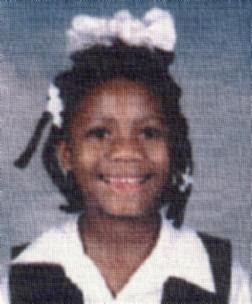Why can't my child read?
D y s l e x i a
means difficulties with words
School Term: (SLD - Specific Learning Disability) or
Specific Literacy/Learning Difficulties SLD/ (Dyslexia)
 Challenges: 1 or more
Challenges: 1 or more
- In older children he/she may make unexpected errors. reading aloud
- have difficulty copying and taking notes and spelling
- write a word in several ways without recognizing the correct version.
- difficulty carrying out a sequence of three or more instructions.
- short-term memory
- concentration
- write letters and numbers the wrong way round, e.g. 17 for 71, 9 for 6, b for d etc
- may have confusion with left and right and he/she may have a poor sense of rhythm.
- may have problems planning and writing essays
- and with mental arithmetic.
- It might take him/her a very long time to read a book with understanding.
- A lack of self-esteem is often apparent.
- Learning about time and tense can also cause problems.
Dyslexia is a neurobiological learning disorder characterized by persistent difficulties with accurate and fluent word recognition, poor spelling, and decoding abilities. It is not related to a lack of intelligence and is often accompanied by difficulties with word and letter reversal, phonetic spelling, and rhyming. It doesn't typically go away; the impacts can be managed with appropriate interventions and support, which can lead to increasingly accurate and fluent reading over time.
Many people with Dyslexia or SLD are very creative. SLD causes significant problems with reading, writing, and spelling, and sometimes math. Common, unknown, and misunderstood. Three times as many males as females are affected. Three types of dyslexia: motor, visual, and auditory. The term "dyslexia" sometimes cannot legally be mentioned in most school systems because it’s a medical term and evaluation. It is likely that there will be marked deficits in their achievements despite being of average or above ability; short-term memory, concentration, personal organization, and sequencing can also be affected.
Children with dyslexia often show two obvious difficulties when asked to read text at their grade level. First, they may not be able to read as many of the words in a text by sight as average readers. There may be many words on which they stumble, guess at, or attempt to “sound out.” This is the problem with “fluent word recognition.”
They often show decoding difficulties, meaning that their attempts to identify words they do not know will produce many errors. They will not be very accurate in using letter-sound relationships in combination with context to identify unknown words. Things to look out for: problems with phonics, poor short-term memory, and the following because the child might seem bright in some ways but with a ‘block’ in others.
***Scotopic sensitivity syndrome - a form of dyslexia that makes it very difficult for a person to read black text on white paper, particularly when the paper is slightly shiny. Contrary to how it seems to be defined, this is not an optical problem. It is a problem with how the nervous system encodes and decodes visual information.
Semantic dyslexia - a form of dyslexia characterized by an inability to properly attach words to their meanings in reading and/or in speech.
Dyslexia: Is It All in Your Mind? This describes the physical differences that develop in the brain of the fetus that result in dyslexia.
Further Information
Identifying Dyslexia
Dyslexia Check list
Teaching Strategies
https://www.readingrockets.org/topics/dyslexia/articles/dyslexia-and-brain-what-does-current-research-tell-us#what-is-dyslexia
http://www.readingrockets.org/article/dyslexia-and-brain-what-does-current-research-tell-us
What are Specific Learning Disabilities (SLDs)? | Ability Central
Remember: Genetics, pre-disposed, heredity and environment.
Begin with:
Understanding that I have a Child(ren) who has special needs.
Progress Steps:
Acceptance, Acknowledge, Embracing, Education and saying


